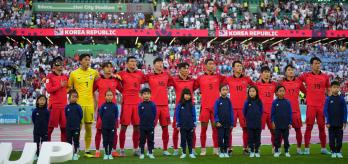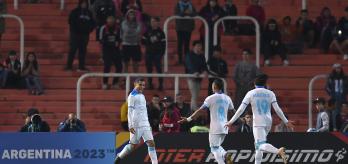Kenio Gonzalo has been involved in football for more than 25 years, and is now Head Coach of Spain's women's U17 side. After working as a physical trainer in the men’s game for a number of years, he made the switch to women’s football in 2007 and coached at several teams in the Madrid area before becoming part of the Spanish Football Association's coaching staff in 2017. In this fascinating interview, Gonzalo discusses various aspects of his role as head coach of the U17s, including how he works with players during training camps and the way the extensive scouting system in Spain allows him to assess players all over the country. He also reveals the four pillars of his football philosophy and looks back on the experience of leading the Spanish team to the FIFA Women’s U17 World Cup™ title in India last year.
Good practice
- Identify the players in your squad with the most complete skillset for each position, and make them aware of all their strengths.
- Highlight the aspects of their game that have developed during their time with the team, and show how their roles can complement those of their team-mates.
- Give players the tools they need to read the game at speed.
Watch interview
Read summary
Part 1: Gonzalo’s footballing journey
In the first part of the interview, Gonzalo looks back on his lengthy football career. He worked in men's football for a number of years, putting teams including Mosteles, Fuenlabrada and Torrejón through their paces as a fitness coach. Around 2007, he made the transition to the women’s game and, after obtaining his UEFA Pro Licence, he moved into coaching women’s teams, including Atlético Madrid. He also casts his mind back to the moment in 2017 when women's national team coach Jorge Vilda invited him to join the coaching staff of the Spanish Football Federation, an invitation he was only too happy to accept.
Part 2: His routine as head coach of the U17 national team
In this section, Gonzalo stresses that, contrary to popular belief, the most important work he does is not during the training camps. Rather, the real work starts on the day after each camp finishes and continues over the two-month window until the next one begins; this is when he watches young players from all over Spain. With the help of an extensive array of scouts and coaches, he ultimately selects 60 players to form part of the wider U17 group. Once these players have been identified, he and his coaches follow up, gathering as much information as they can to help them develop each individual player.
Part 3: A philosophy based on 4 pillars
In part 3, Gonzalo describes his coaching philosophy, which is based on four pillars. He believes these pillars are key not just for footballers, but for any athlete wanting to achieve success. These four pillars are technical, tactical, physical and psychological. He explains that once the most complete players are selected for each individual position within the U17 side, the coaches work on these pillars gradually every time the players come to training camps. This technique produces improvements in all areas, including the high press, decision-making and the ability to read the game.
Part 4: Winning the U17 Women’s World Cup
In the final section of the interview, Gonzalo talks about his team’s experience of winning the FIFA Women’s U17 World Cup in India, a tournament that was certainly not short of talking points for his young Spanish team. As he explains, the team had to adapt to a number of different things in India, including the time zone, the weather conditions and the local food. With this in mind, they arrived eight days before the first match to acclimatise and make sure they were ready for the opening game. There was time for plenty of fun, too, such as when a torrential downpour turned their training pitch into a swimming pool. Of course, he and his squad promptly dived straight in!



















